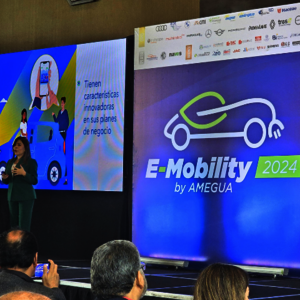CABEI and FAO join forces to invest in Central America’s sustainable development

Both institutions promote regional development in such areas as environmental sustainability, climate change and food and nutrition security.
CABEI Country Director for Costa Rica, Alberto Cortes; CABEI Country Director for El Salvador, Guillermo Funes; FAO Deputy Director-General and Coordinator for Natural Resources, Maria Helena Semedo; CABEI Executive Vice President, Attorney Alejandro Rodríguez Zamora; and FAO Assistant Director- General for Forestry, Rene Castro.
A delegation from the Central American Bank for Economic Integration (CABEI) recently visited the headquarters of the Food and Agriculture Organization (FAO) with the objective of strengthening cooperation areas to promote sustainable development in the Central American region.
The CABEI delegation, which was led by Executive Vice President Attorney Alejandro Rodríguez Zamora, also included Country Director for El Salvador, Mr. Guillermo Funes, and Country Director for Costa Rica, Mr. Alberto Cortes. During the visit, the delegates held a series of meetings with officials from different areas at FAO in order to strengthen cooperation between the two institutions with regard to such initiatives as adaptation and climate change; forestry; water and soil use; and food security.
In this sense, Attorney Rodríguez Zamora reiterated CABEI’s complete willingness to structure joint proposals particularly for presentation to global climate change mitigation and adaptation funds. During the past five years, CABEI has approved more than US$217.0 million in support of rural development and the environment. The coordination of the joint actions would lead to CABEI’s increasing its investment in these high-priority areas by taking advantage of FAO’s technical capabilities and to improving the situation in the agricultural and rural sectors by reducing their vulnerability to the effects of change climate.
The meetings were held in the framework of the global commitment to mobilize resources towards initiatives that prepare the most vulnerable countries to mitigate and adapt to climate change. Under this concept, it is noteworthy that both institutions are seeking mechanisms to support the agricultural sectors, including forestry and fisheries. The subject of climate change must be dealt with as an integral part of the regional development agenda.
It is essential for CABEI to establish strategic alliances in order to join forces for seeking environmental sustainability and reducing vulnerability to natural disasters associated with climate change. These alliances are critical to ensuring that efforts in social development, competitiveness and regional integration are environmentally viable on the short, medium and long term.









